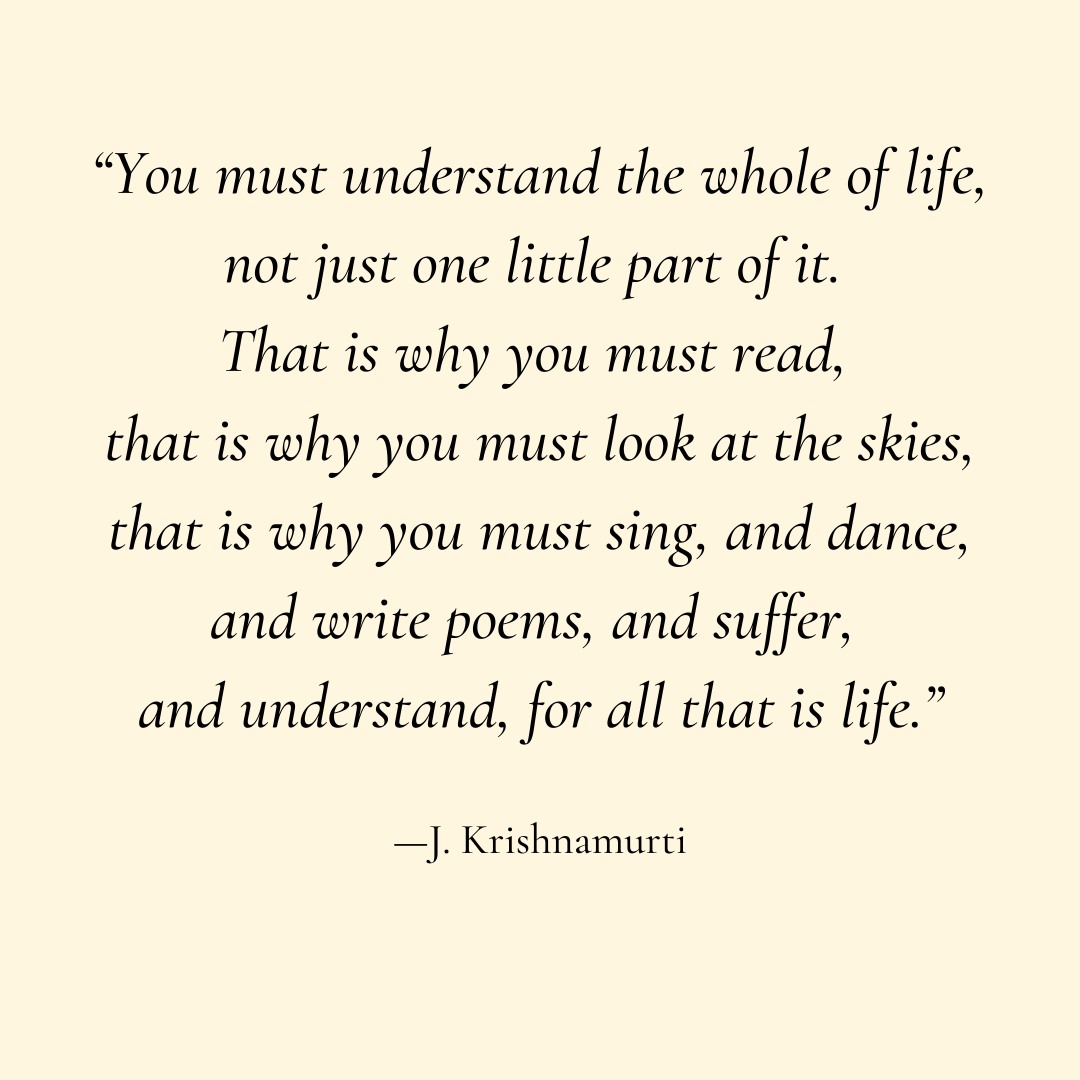I first arrived in the Valley 20 years ago, in June 1995, wearing a flowered cotton dress stitched by my grandmother. I didn’t understand then why my parents, inspired by a slim paperback called Freedom from the Known, had moved back to India to seek out this school for me. Over the next few weeks, as red mud stained the bottom of one cotton dress of mine after another, I walked beguiled around this unusual wonderland where wildflowers and wish plants bloomed riotously, and elephants, panthers, and sometimes snakes wandered by to visit.
We wove our way through the junior school quadrangle with its carpet of yellow flowers, through middle school mezzanines with skylights and mosaics, to the senior school courtyard with tree-top-high terraces. We picked gooseberries and sour cherries, rubbing them on our dresses for a second before tossing them into our mouths. We sat on the stone bench under the neem tree, underneath the banyan tree that held the amphitheatre in its arms. We lingered beside the pond at the Art Village amidst overgrown marigold bushes at the edge of the bamboo grove. We flooded the art room and the pottery shed with chatter, as we dipped our hands into paint, clay, and plaster of paris, making paintings, shaping pots, and tapping our small feet.
We waited for the monsoon to come so that rainwater would collect in the lake. Once the pool was deep enough, we slipped off our sandals and skipped into the lake’s green waters. We listened for birdcalls and observed the tiniest insects, seeking out unbeaten paths, knowing they would be replete with undisturbed wonder. We lay down on the games field on a starry night and discovered constellations. We slid into cool streams to study water and dug deep into the earth to learn about soil. We climbed onto rooftops and recited Shakespearean monologues, “Friends, Romans, countrymen…”. Little by little, as I too began to bloom riotously, I began to understand what had drawn my parents to the Valley.
Before we left, you whispered, “If you love the Valley so much, you should come back here…”. We burst forth into the world with a heady curiosity. Writing poetry, making music, curating art, acting in plays, teaching in schools, learning how to build with mud, understanding sanitation, unravelling transportation challenges, working on waste management, on how handicrafts can be livelihoods, studying law to promote justice, leveraging technology to improve the lives of the marginalized, singing, dancing, reading, painting—myriads of meaningful choices, each one as unique as each of us—for we had learned, early on in the Valley, that the paths would always be countless and so we must follow our hearts.
As I followed a poem of Sylvia Plath’s to college all the way across the world from home, and the world split open at my feet like a ripe juicy watermelon just as she had promised it would, I discovered that growing up at the Valley had made me both wide-eyed and a little bit wise. At graduate school in New York, where countless stories unfold in parallel, each time I told someone new about the unusual wonderland where I grew up, I watched their eyes light up in wonder, and felt a prickly pride swell in my heart. “Come back…”, the Valley seemed to whisper.
It rained before I returned to the Valley. May carpets of gulmohar petals lined the slopes and water lilies bloomed in each small pond. As I began to discover the thoughtfulness behind our seemingly effortless experiential education, I developed a newfound respect for the philosophy, pedagogy, and practices of this truly unusual place. I saw a familiar silky, pink weed grass that we used to wish upon, spring up after the rains and asked if anyone knew its name. Until a wise seven-year-old reminded me that none of the wish plants have names because that would make them ordinary. Wandering through the pathless land of nameless wish plants, reconciling fearlessness with mindfulness, perhaps it is inevitable that children become somewhat extraordinary. Maybe excellence is impossible without freedom?
“An Ode to the Valley of Unnamed Wish Plants” appeared in the Journal of Krishnamurti Schools
